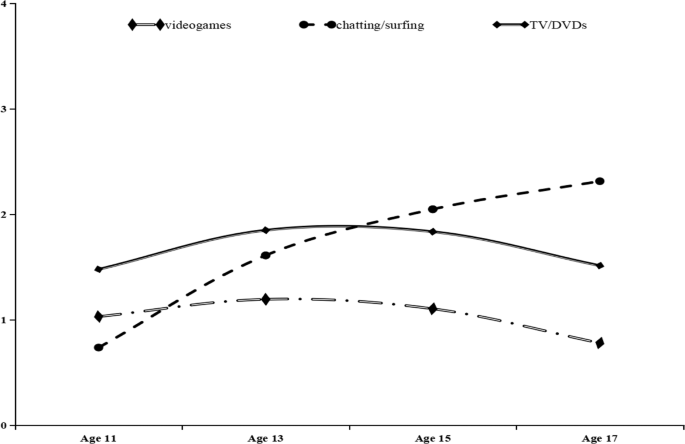2024-01-15 エディンバラ大学
◆研究によれば、早い段階で画面活動に多くの時間を費やすことは、成長するにつれて攻撃的な行動やたばこ・大麻の使用傾向が強まる可能性があります。
◆ただし、研究者はデータが2009年に収集されたものであり、自己申告に基づいている点に注意を喚起し、今後の研究で独立したデータと画面活動の詳細な分析が必要だと述べました。
<関連情報>
- https://www.ed.ac.uk/news/2024/teens-who-up-screen-time-raise-mental-health-risks
- https://link.springer.com/article/10.1007/s10964-023-01782-x
青年期におけるスクリーンタイムの軌跡と成人期のメンタルヘルスおよび行動結果との関連 Trajectories of Screen Time across Adolescence and Their Associations with Adulthood Mental Health and Behavioral Outcomes
Xinxin Zhu,Helen Griffiths,Zhuoni Xiao,Denis Ribeaud,Manuel Eisner,Yi Yang & Aja Louise Murray
Journal of Youth and Adolescence Published: 06 May 2023
DOI:https://doi.org/10.1007/s10964-023-01782-x

Abstract
Excessive screen time among adolescents is discussed as a significant public health concern. Identifying adolescent longitudinal patterns of time spent on regularly-used media screens and understanding their young adulthood mental health and behavioral issue correlates may help inform strategies for improving these outcomes. This study aimed to characterize joint developmental patterns of time spent on videogames, surfing/chatting the Internet, and TV/DVDs during adolescence (at ages 11, 13, 15, 17) and their associations with mental health (i.e., depression, anxiety, suicidal ideation, and self-injury) and behavioral issues (i.e., substance use, delinquency, aggression) in early adulthood (at age 20). A parallel-process latent class growth analysis was used to model data from a diverse community-ascertained sample of youth in Zurich, Switzerland (n = 1521; 51.7% males). Results suggested that a five-class model best fitted the data: (1) low-screen use, 37.6%; (2) increasing chatting/surfing, 24.0%; (3) moderate-screen use, 18.6%; (4) early-adolescence screen use, 9.9%; and (5) increasing videogame and chatting/surfing, 9.9%. After adjusting for baseline levels of outcomes (primarily at age 11), the trajectory groups differed in their associations with adulthood outcomes of mental health and behavioral problems, indicating the importance of problematic screen usage patterns in predicting these outcomes. Future research to test the directionality of these associations will be important. These findings suggest which patterns of screen use may be a marker for later mental health and behavioral issues in different domains.


